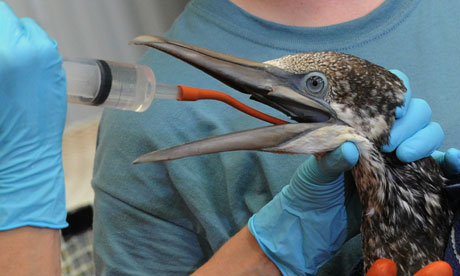Monday, May 3, 2010
The High Cost of Black Gold
On April 20, 2010 there was an explosion on a BP oil rig in the Gulf of Mexico. When the accident first happened, the main news story was about the potential victims. Reporters monitored the search for 11 people who were missing after the explosion.
Search crews have since given up hope to find those missing 11. But the tragedy continues to unfold. The oil continues to leak at an incredible rate, creating a massive oil slick approaching the U.S. coast. The barriers being used in an attempt to hold the oil are not doing their job, and the Coast Guard has resorted to using controlled burns to contain the oil.
According to BP, the worst-case scenario is that the leak could take 2 to 3 months to correct. However, the amount of oil that would be spilled at that point is estimated to surpass the Exxon Valdez, the current worst oil spill in U.S. history.
The vast resources consumed by a clean up of this scale are staggering, but they will never completely contain the damage. Oil is a poison, and countless birds and marine wildlife are going to die from this oil spill. A commercial fishing ban has already been put in place to protect Americans, but there are so many other ways the oil can impact our health, through contaminating water and land.
Is there a silver lining? The only positive I can see is that this could serve as a wake-up call for all stakeholders supporting continued U.S. dependence on oil. What can you do? Contact your Senators and Representatives and demand they support energy independence initiatives that also protect U.S. health, such as wind and solar power.
Subscribe to:
Post Comments (Atom)




No comments:
Post a Comment
Commenting is now open, but we'd love it if you chose one username so other commenters can get to know you. To do this, select "Name/URL" in the "Comment as" drop down. Put the name you'd like others to see; the URL is optional.
Any profanity, bigotry, or synonyms for "[ ] sucks!" will be deleted. We welcome criticism as long as you're making a point!